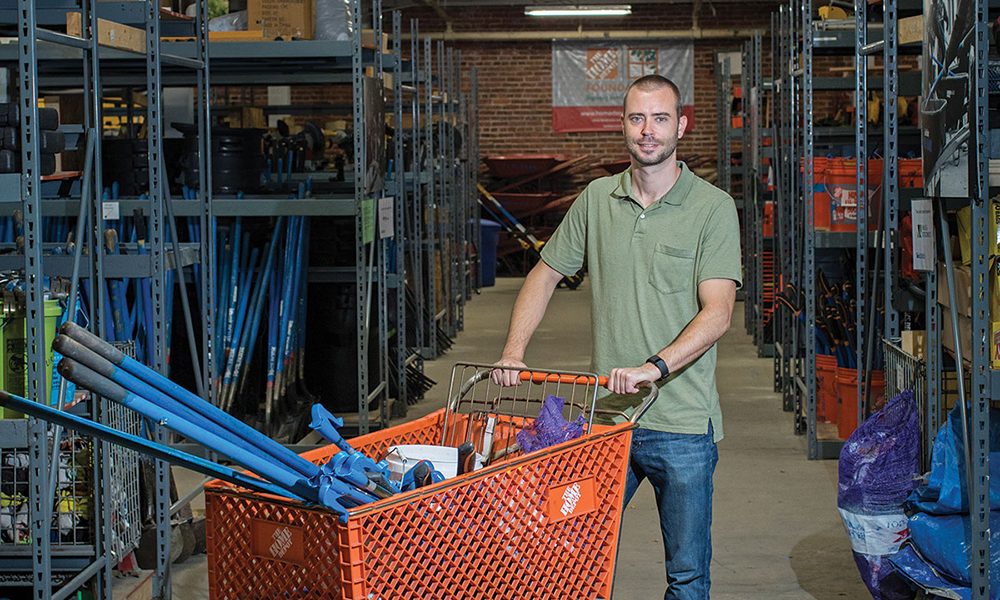News & Community
Hit the Nail on the Head
South Baltimore tool nonprofit celebrates its fifth anniversary.
Standing in an open warehouse, surrounded by aisles and aisles of shovels, rakes, and wheelbarrows, Noah Smock sifts through a thick stack of papers, each representing a charitable organization that has borrowed tools from his South Baltimore supply in recent weeks.
Smock is not a manager at Lowe’s. He is the executive director of the Baltimore Community ToolBank, an inventory of some 5,000 tools that can be rented by schools, churches, charities, and other local organizations for a mere three cents on the dollar. The cost-effective strategy helps these do-gooders and underserved communities take on projects that they can’t afford. “The people we serve are often tasked with solving difficult problems with very few resources,” says Smock. “These tools allow them to realize impossible dreams.”
Since launching in 2012, the local nonprofit has partnered with some 500 organizations, including the Y of Central Maryland, Parks & People Foundation, and Alliance for the Chesapeake Bay, which used the tools for everything from daily tasks to large-scale projects, such as tree plantings, playground restoration, and urban farming.
This past summer, with the help of the ToolBank, the South Baltimore Partnership conducted major neighborhood cleanups, which president Betty Bland-Thomas says would have otherwise been impossible. “I couldn’t afford to buy shovels, power tools, gloves, and weed whackers for 25 people,” she says. “The ToolBank has been a blessing.”
The nonprofit was once “promise rich and cash poor,” as Smock puts it, but it now has two full-time employees, a 20-person board, and plans to empower some 50,000 volunteers in 2017. The work is sustained by grants and donations from the likes of DeWalt, Home Depot, and other foundations, but mostly, the community.
In return, Smock and his team do their part to beautify their own somewhat gritty South Baltimore neighborhood, having added bright blue murals and two rain gardens to the warehouse-lined Wicomico Street. “We want to strengthen and celebrate our communities,” says Smock. “To me, tools are empowerment.”
